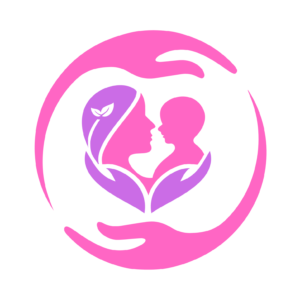As a practicing gynecologist, one of the most common questions I get from hopeful couples is, “How can I get pregnant quickly?” While every person’s journey to conception is unique, there are proven steps that can significantly increase your chances of conceiving faster. If you’re ready to grow your family, here’s a science-backed, practical approach to help you on your way.
1. Track Your Menstrual Cycle and Ovulation
Understanding your cycle is key. Ovulation typically occurs around 12 to 16 days before your next period. This is when your body releases an egg, the optimal time to conceive.
My advice: Use ovulation predictor kits (OPKs), track basal body temperature, or monitor cervical mucus. You can also locate your fertile window with the assistance of excellent fertility tracking apps.
2. Relationships During Ovulation
Between the five days before ovulation and the actual day of ovulation, the “fertile window” lasts around six days. The egg only lives 12 to 24 hours after discharge, but sperm can remain in the reproductive system for up to five days.
Recommendation: During your reproductive window, especially the two days prior to ovulation, try to have sex every one to two days.
3. Get a Preconception Check-Up
A good idea is to schedule a preconception visit before trying to conceive. I use this time with my patients to:
- Review medical and family history
- Discuss any chronic conditions (e.g., thyroid issues, PCOS, diabetes)
- Revisit vaccinations.
- Review current medications
- Provide recommendations for prenatal vitamins
4. Start Taking Folic Acid
Start a prenatal vitamin that includes 400–800 mcg of folic acid daily, ideally at least one month before trying to conceive. This supports early fetal development and helps prevent neural tube defects.
5. Maintain a Healthy Lifestyle
Your general health plays a crucial role in fertility. Here’s what I advise:
Maintain a healthy weight:
Both underweight and overweight individuals may experience hormonal imbalances that affect ovulation.
Eat a balanced diet:
Focus on whole grains, lean protein, healthy fats, fruits, and vegetables.
Exercise moderately:
Regular activity supports hormonal balance, but avoid excessive exercise which can disrupt ovulation.
Limit caffeine and alcohol:
Keep caffeine below 200 mg/day and avoid alcohol while trying to conceive.
Quit smoking:
Smoking negatively affects fertility for both men and women.
6. Get Your Partner Involved
Fertility is a journey shared by all. Encourage your partner to:
- Keep a healthy body weight.
- Avoid tobacco, alcohol, and recreational drugs
- Stay cool: prolonged heat (like hot tubs) can reduce sperm count
If you’ve been trying unsuccessfully for six to twelve months, think about getting a semen analysis.
7. Manage Stress
While stress alone doesn’t usually cause infertility, high stress levels can interfere with hormonal regulation and ovulation. Try mindfulness, yoga, deep breathing, or anything that helps you unwind.
8. Know When to Seek Help
If you’re under 35 and haven’t conceived after 12 months of trying (or after 6 months if you’re over 35), it’s time to consult a fertility specialist. Earlier evaluation is also advised if you have irregular cycles, known reproductive conditions (like endometriosis or PCOS), or other health concerns.
Final Thoughts from Your Gynecologist
It’s alright if you don’t get pregnant right away. Every couple’s timeline is different. By optimizing your health, tracking your cycle, and timing intercourse appropriately, you’re setting yourself up for the best chance of conception. Please get in touch if you have any questions or if you have tried without success. We are here to help you at every stage.
Wishing you a healthy and successful journey to parenthood.
Dr. Sofia Manzoor, OB/GYN
